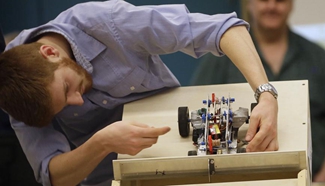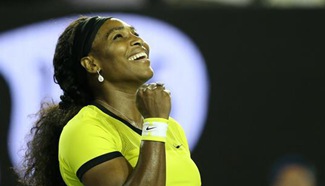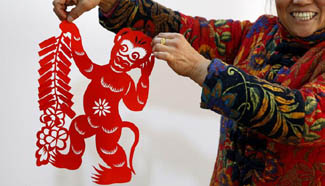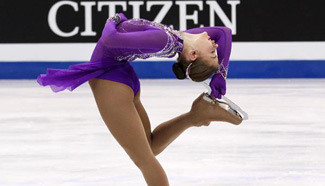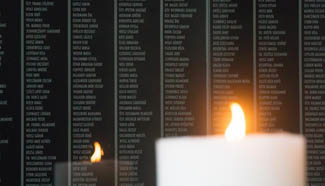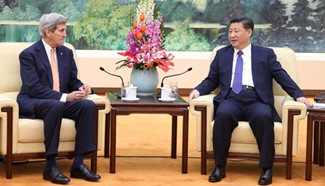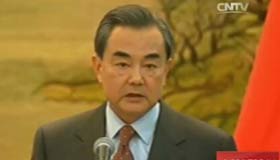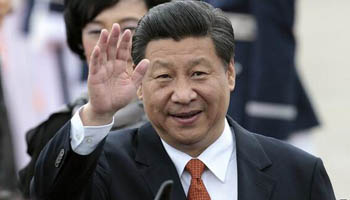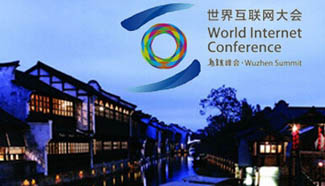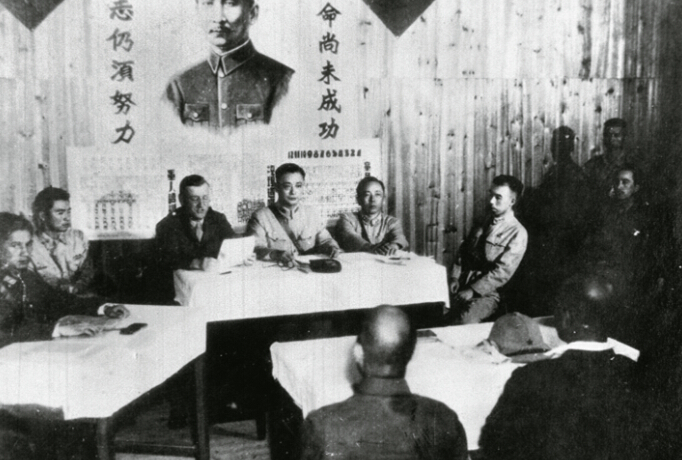
Many countries are commemorating the 70th anniversary of the end of World War Two. For the Chinese people, who are undergoing unprecedented development and challenges, the commemoration is particularly significant.
Remembering history
The aim of the commemorations for China is to remember that the nation transcended its peace-loving traditions. To defeat fascism, the Chinese people were willing to go to war and make tremendous sacrifices for the eventual victory.
China’s war against Japanese aggression was the longest conflict of the entire World War. With the casualties of 35 million, the Chinese people made a huge contribution to the final victory with a determination that thwarted Japan’s advance through the Asia-Pacific region.
In recent years, Japanese academics have published the private archives of Japan’s Emperor Hirohito. A Japanese historian believed the publication of Hirohito’s words would help reshape Japan’s understanding of China. According to the diary of his main aide Kuraji Ogura, the Emperor said in private on October 12, 1940 that China’s fortitude was unanticipated, and the army had erred greatly in forecasting the course of the war. On January 9, 1941, with the Pacific War yet to begin, Hirohito said Japan had underestimated China and should stop the war for 10 years to rebuild its strength. The words of Hirohito show that China’s heroic defense had shaken the aggressor’s confidence and signaled Japan’s eventual defeat.
To commemorate the victory, we must promote the heritage of bravery and patriotism. In peacetime, we want no war, but the spirit is still needed to overcome difficulties and advance our causes on other fronts, so as to realize the dream of making China one of the world’s developed nations.
Utilizing post-war institutions
The victory over fascism was a triumph of the forces of peace, equality, democracy and freedom, and led to unprecedented institutional arrangements that enabled emerging countries to participate in and influence world affairs.
As permanent members of the United Nations Security Council, China and Russia have wielded significant influence in world affairs since World War Two. In those 70 years, the world, with the UN as the main axis, remained largely peaceful despite difficult times. The international order is also changing, with emerging countries playing an indispensably positive role. As a latecomer, China advocates a gradual reform of the international institutions rather than a radical upheaval.
The events since World War Two show that the result of the war shaped relations between nations and the international order, and that development and competition in peace could also shape the world to a large extent. Summarizing the lessons and experiences of the war, we should learn to avoid war, but more importantly, we should learn to adjust to changes peacefully and achieve prosperity and progress.
Emerging economies and developing countries should learn to more smartly play by the rules of the existing international institutions, especially the rules and institutions established after millions of deaths in World War Two, and to advance domestic and international reforms for lasting peace and development.
Revisiting valuable cooperation
The war was won by people of the righteous and democratic countries, politically, economically and militarily supporting each other. The commemoration must translate to enhanced international cooperation, especially to the new model of major power relationships.
Had not China and the USSR shouldered the huge pressure in Asia and Europe – with their mutual support and sacrifice, as well as sacrifices by American, European, Australian and other forces – the victory over fascism would not have been assured.
Since then, whenever difficulties arise between nations, wise politicians invoke the example of the Allied Forces: solidarity was indispensable in the postwar world. As an academic, I understand that economic cooperation between nations comes from political cooperation first, and this is one lasting impact of World War Two.
Seeking lasting peace
The commemoration is, most fundamentally, to seek practical methods to avoid war, particularly wars with global impacts such as World War Two itself. What needs to be done is to explore history, analyze the philosophies, and institutionalize the mechanisms, laws and arrangements that could lead to stability and peace in the long term.
The reformation of world order always has lasting effects.
The rules that still govern nation states originate from the Westphalian system. In the Oriental world, the rules are the same in terms of sovereignty and territory.
After 1815, one of the reasons of the Hundred Years Peace that came from the Vienna System was the co-existence of various schools of political thought: classic liberalism, socialism and nationalism.
The 20th Century was an age of extremes, according to left-wing historian Eric John Ernest Hobsbawm. The 1904-1905 war between Japan and Russia was already seen by some as the beginning of bloody world wars. Against this background, the international order had a difficult existence. Emerging economies and developing countries, including small and medium-sized countries, gained a seat in the world order. At the end of the Cold War, the equilibrium was overthrown again, but fortunately peacefully, a rare occurrence in human history, but profoundly inspiring for future generations.
At this juncture where the future of world affairs is subject to wild disagreements, it is necessary to seek peace from history, particularly from international institutions that enabled peace for a significant period. This needs calm and objective analysis of the current world order, including its pros and cons, and consideration of the concepts of justice and time. It is yet another subject on the eve of the 70th anniversary of victory in World War Two.
Facing today’s challenges
The commemoration of victory is also based on a series of pressing challenges. How do we ensure peace and stability in the face of political and economic imbalances and their rapid changes? How do we assess World War Two as time goes by? As groups and organizations tend to overlay the historic conclusions of the war with geopolitics, to disrupt relations between nations from a traditionally ideological standpoint, and even risk war at a cost of tens of millions of lives, peace-loving people must urgently and actively confront and combat their actions.
Should we advocate equilibrium or imbalance? Modesty or arrogance? Mutual existence and respect for plural cultures, or conflict? Mutual benefits or a zero-sum game? The war, which ended 70 years ago, left ample lessons that might help mankind answer the questions and inform the decisions of today.


